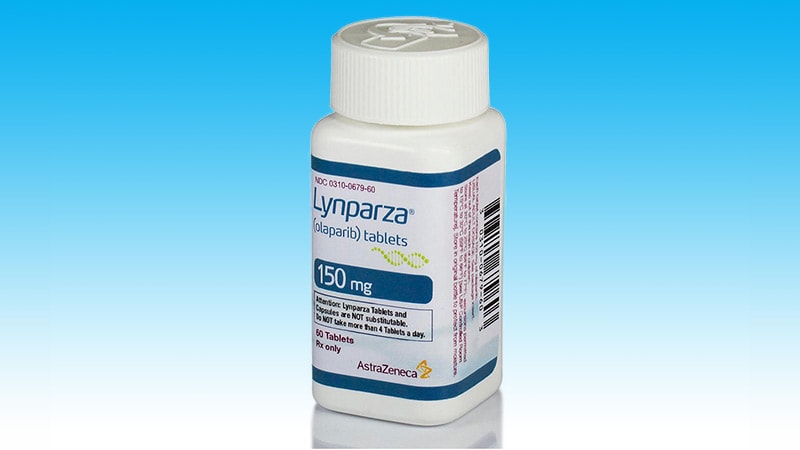Panel Recommends Limited Olaparib Use in Prostate Cancer
Belangrijkste concepten
Restrict olaparib use to BRCA-positive patients in prostate cancer treatment.
Samenvatting
Late last week, a panel of independent advisers recommended restricting olaparib use alongside abiraterone in metastatic castration-resistant prostate cancer to patients with BRCA mutations. The FDA raised concerns about the broad new indication, emphasizing limitations in research and potential risks. The ODAC panel voted in favor of a restricted expansion of olaparib use based on BRCA status, aligning with FDA criticism of the study design and data quality.
Key Highlights:
- Panel recommends olaparib use in prostate cancer only for BRCA-positive patients.
- FDA expresses concerns about the broad new indication for olaparib.
- ODAC panel votes in favor of restricting olaparib use based on BRCA mutation status.
- FDA criticizes the research supporting olaparib's expanded use.
- Study design and data quality of the PROpel trial are questioned.
- FDA highlights potential risks and limited benefits for patients without BRCA mutations.
- AstraZeneca expresses disappointment with the panel's recommendation.
- ODAC member supports expanded approval for olaparib based on positive results from the PROpel trial.
- Patient representative raises concerns about financial toxicity and the need for more effective treatments in prostate cancer.
Samenvatting aanpassen
Herschrijven met AI
Citaten genereren
Bron vertalen
Naar een andere taal
Mindmap genereren
vanuit de broninhoud
Bron bekijken
www.medscape.com
Panel Backs Limited New Olaparib Use in Prostate Cancer
Statistieken
The median time for radiographic progression-free survival was nearly 25 months in the olaparib group vs 16.6 months in the placebo group.
The hazard ratio for reduced risk of death was 0.81, which was not statistically significant (P = .0544).
BRCA-positive patients accounted for most of the survival benefit of the combination, though they made up only 11% of the PROpel population.
Citaten
"While we are pleased with the recognition of the benefit of Lynparza plus abiraterone for patients with BRCA-mutated metastatic castration-resistant prostate cancer, we are disappointed with the outcome of today’s ODAC meeting." - Susan Galbraith, AstraZeneca
"People are aware that olaparib provides a great deal more benefit in the BRCA-positive group and may give 'only minimal benefit if these tests are not positive,' but 'these risks and benefits can be addressed at the patient and physician level.'" - Jorge J. Nieva, MD
Belangrijkste Inzichten Gedestilleerd Uit
by Kerry Dooley... om www.medscape.com 05-01-2023
https://www.medscape.com/viewarticle/991408
Diepere vragen
How might the limitations in the research design impact the future use of olaparib in prostate cancer treatment?
The limitations in the research design, particularly the lack of prospectively evaluating BRCA or HRR status in participants, could have significant implications for the future use of olaparib in prostate cancer treatment. Without this crucial biomarker information, it becomes challenging to accurately identify which patients would benefit most from olaparib therapy. This limitation may lead to suboptimal outcomes, as seen in the PROpel trial, where the survival benefit was primarily observed in BRCA-positive patients despite being a minority in the study population. Moving forward, this could result in uncertainty regarding the effectiveness of olaparib in patients without BRCA mutations, potentially leading to inappropriate treatment decisions and suboptimal patient outcomes.
What are the ethical considerations in restricting olaparib use to patients with BRCA mutations?
Restricting olaparib use to patients with BRCA mutations raises several ethical considerations. One of the primary concerns is the potential for inequitable access to treatment. By limiting olaparib to a specific subset of patients based on their genetic profile, there is a risk of creating disparities in access to potentially beneficial therapy. This raises questions about fairness and justice in healthcare, as patients without BRCA mutations may be denied access to a treatment that could benefit them. Additionally, there are concerns about informed consent and patient autonomy. Patients may feel pressured to undergo genetic testing to determine their eligibility for olaparib, potentially infringing on their right to make autonomous decisions about their treatment. Overall, the ethical considerations in restricting olaparib use to patients with BRCA mutations highlight the importance of balancing personalized medicine with equitable access and patient autonomy.
How can financial toxicity be addressed to ensure equitable access to effective treatments for prostate cancer patients?
Addressing financial toxicity to ensure equitable access to effective treatments for prostate cancer patients requires a multi-faceted approach. One strategy is to explore alternative payment models, such as value-based pricing or outcomes-based agreements, that align the cost of treatment with its effectiveness. This can help mitigate the financial burden on patients and ensure that they have access to treatments that provide the most value. Additionally, increasing transparency in pricing and reimbursement processes can empower patients to make informed decisions about their care and navigate the financial aspects of treatment more effectively. Patient assistance programs, financial counseling services, and advocacy for insurance coverage of innovative therapies are also essential in addressing financial toxicity and promoting equitable access to effective treatments for prostate cancer patients. By implementing these strategies, healthcare stakeholders can work towards reducing the financial barriers that prevent patients from accessing potentially life-saving treatments.
0
